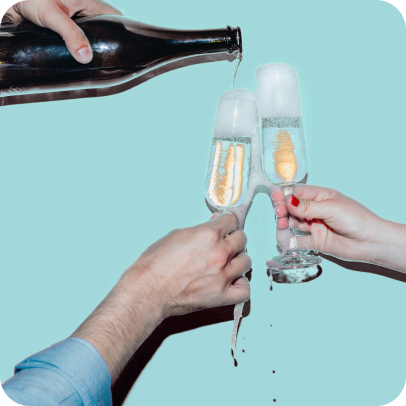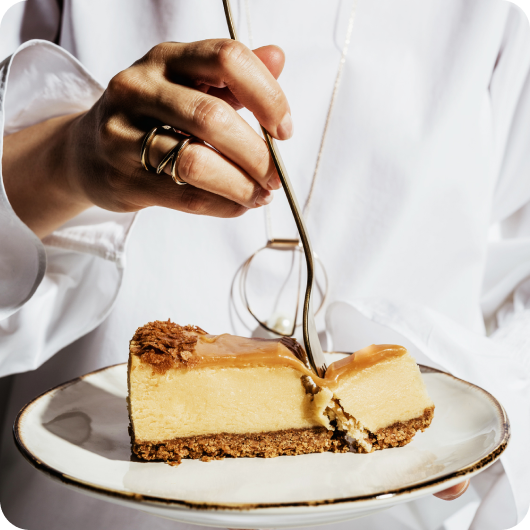Hospitality businesses hoping to succeed in the future must comprehend how to approach loyalty. A brand’s loyalty programme should be considered as a part of the company’s wider marketing strategy. To build trust and reward customers for their continued investment in the business. Hospitality businesses must strategically invest in rewarding high-value customers as a primary objective.
The loyalty process:
- Reach customers
- Engage with customers in a meaningful way
- Collect customer behaviour/preference data across all customer touch-points
- Analyse the data
- Re-engage with customers to reward customers for their support and drive repeat spend
That’s the goal. “But how?” I hear you say… read on:
Loyalty starts before a customer becomes a customer.
Hospitality businesses should consider the customer experience from the beginning, not just when customers dine at their restaurant or bar. All the customer sees, hears, and experiences contribute to brand loyalty. Customers form an opinion about a company immediately, and it is particularly crucial in the hospitality industry, which is fundamentally a human service. Hospitality businesses should consider how their brand values can inspire positive emotions and engagements with customers to create long-term buy-in from customers.
What should brand loyalty look like?
“43% of customers spend more on brands that they are loyal to” (Source: techjury)
Customers need to feel valued and respected which can be a challenge for brands. But with emotional and transactional rewards as well as loyalty schemes, brands can do just that.
But approaching loyalty depends on the brand and how they want to reward customers. There are different ways this can be achieved:
- Points or stamp-based schemes
- Customer access to lower prices (for example Tesco Club Card)
- A tiered system giving access to exclusive perks
- Access as customers rise through ‘levels’
Using tech to drive loyalty.
Similar to transactional rewards and loyalty schemes, e-commerce technology should be used to improve brand loyalty. E-commerce and service technology can be utilised to generate additional revenue and capture data where it is currently difficult to do so.
E-commerce technology allows hospitality businesses to diversify their product range for example using an e-shop to sell recipe books, events or gift cards. This is a strategic, brand-championing way to drive additional revenue. Every time a customer purchases via an e-commerce channel, data can be captured and details of those e-commerce transactions made are stored and organised in a CRM.
Service technology, such as pay at your table apps, offers a wealth of opportunities for hospitality businesses to drive loyalty. Customers who eat in your restaurant can now easily sign-up to a restaurant’s database when using a pay-at-table app. In-store transaction data can be collected and saved to a customer’s profile. Servers can spend more time focusing on whether the customer is enjoying their experience rather than processing the detailed ins and outs of a customer’s order.
Relationships between the customer and brand will become stronger, and be more in tune with:
- What customers experience whilst in the business – waiters have more time to provide a valuable long-lasting impression on the customer
- Take advantage of the opportunity to diversify the product range. This drives additional revenue and allows the customer to engage with the brand through exciting products or gifts.
- The above allows a hospitality business to collect data across multiple customer touch-points: order and pay at table, e-shop, delivery/collection, gift cards, event ticketing… the list goes on. Imagine if one of your customers uses just 3 of the above functionalities and you could harness that information to drive loyalty further.
Hospitality brands who use technology to their advantage will have a deeper understanding of customer behaviour and this will enable them to create a meaningful strategy in engaging with them moving forwards.
In Summary
Loyalty is more than only rewarding people based on just bookings or visits. And hospitality is more than that. It’s a human business, based on customer needs, preferences, and behaviours. Brands need to utilise technology to allow staff to create long-lasting impressions on customers and generate a powerful customer view based on actual data.
We’re in the golden age for loyalty and community building for hospitality, the question is which businesses are currently moving on this, and what’s the best way to achieve this?
Fuse utilises the idea and provides the best hospitality brands with e-commerce experiences with multiple features (meal kits, event tickets, gift card purchases, order and pay, e-shop), to delight their customers in a myriad of ways.
Fuse joins up all the data together across all in-store and online revenue channels, to bring a complete view of loyalty for your brand. Because with great data, you’ll be able to execute an incredible loyalty strategy that’s tailored to your customers, based on their purchases, and preferences whilst perfectly championing your brand.
Visit our website to find out to optimise brand loyalty with Fuse: fuse-hospitality.com









